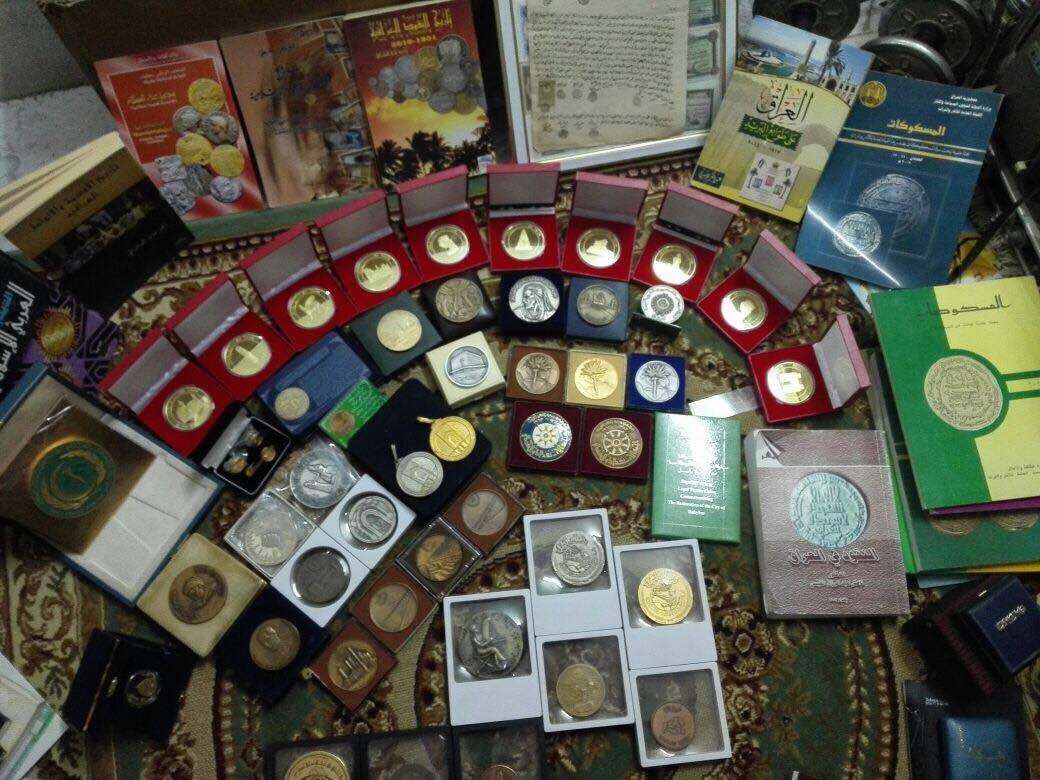1 bedroom. 20,000 antiquities.
Hussein Fahim al-Shabani’s bedroom has become a veritable museum of tens of thousands of collectibles and antiques.
The walls hold complicated and delicate metals and jewelry and books from Iraq’s history. Ottoman-era coins and paper notes rest on velvet pillows as his collection grows.
Ever since the Mosul museum was destroyed by Islamic State fighters, the history and legacy of Iraq has been greatly imperiled, its legacy and heritage nearly vanished.
Now, with the help of friends and supporters who have begun to hear about al-Shabani’s efforts, the collection is growing.
With the help of an art historian at the University of al-Qadisiyah, that bedroom will soon move to a more permanent museum space.
But for now it exists as Hussein’s own private collection in the Diwaniya provice, of which he gave me a virtual tour.
“This has been my hobby for the past 15 years of my life,” al-Shabani, 27, said. “I gathered all the antiques from all over Iraq and the arba and foreign countries. At first it was a hobby then I learned the historical value of it so I started to do it seriously.”
The walls in his room are covered with centuries of antiquities, comprising some 20,000 pieces, he told me. The collection contains swords, precious stones, wood and stone statues, coins, and dishes from many countries that represent Iraqi culture and heritage.
“One day I hope I can have my own museum,” he said. “I have only the things that are legal for me to have. As for the government, they don't allow civilians to own pieces over 200 years.”
His collection, which he started he was about 10 years old, are over a century old, but none more than 200 years.
Farther north, in the Kurdish capital of Erbil, the Kurdistan Memory Programme has begun collecting oral histories from Kurds from around the semi-autonomous region, with a specific focus on Saddam Hussein’s genocidal “Anfal” campaign.
“Consisting of an international team including members of the Kurdish community from both inside and outside Kurdistan, the KMP works to record a definitive cross section of oral testimonies in high definition video,” according the program’s website.
The exhibition, designed by the British design firm Haley Sharpe, has faced funding issues.
Since the 2014 incursion of ISIS, Kurdish support remains high but money low. Governmental and financial support have shifted to harboring refugees and combating ISIS.
Back in Diwaniya, al-Shabani traversed his 20-square-meter room, in which he keeps all of his Ottomon-era banknotes and utensils depicting Iraqi rulers.
“Al-Shabani is expressing his love for his country through the things he has collected,” Jabbar Ulaiwi Laftah, an art historian at the University of al-Qadisiyah, told a local news outlet. “This is shown by his enthusiasm for collecting local artifacts and his willingness to share them with his peers, so that they too can know more about their own heritage.”
When asked whether he would help support future museums or showcases with the collectables he’s garnered, al-Shabani said, “If it's for my country, if it's going to be historically important for Mosul, I'll donate it.”





